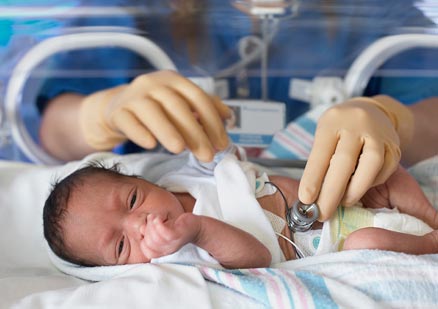
Navigating the Maze of Neonatal Care: A Comprehensive Guide to Nurses Caring for Newborn Babies
Introduction
The arrival of a newborn baby is a momentous occasion, filled with joy and anticipation. However, for some infants, their entry into the world is accompanied by medical challenges that require specialized care. This is where neonatal nurses step in, playing a pivotal role in ensuring the well-being and development of these vulnerable newborns.
What is a Neonatal Nurse?
Neonatal nurses are registered nurses (RNs) who have undergone specialized training to care for infants from birth to 28 days of age. They possess a deep understanding of the unique physiological and developmental needs of newborns, as well as the ability to provide comprehensive medical care in a variety of settings.
Types of Neonatal Nurses
Depending on the level of care required, there are different types of neonatal nurses:
- Level I Nursery Nurses: These nurses care for healthy newborns who require routine care, such as feeding, bathing, and monitoring vital signs.
- Level II Nursery Nurses: These nurses provide care for infants with mild to moderate medical conditions, such as jaundice, respiratory distress, or feeding difficulties.
- Level III Nursery Nurses (NICU Nurses): These nurses specialize in caring for critically ill or premature infants who require intensive medical support, such as mechanical ventilation, intravenous therapy, and specialized monitoring.
Roles and Responsibilities of Neonatal Nurses
Neonatal nurses perform a wide range of duties, including:
- Assessment and Monitoring: They assess newborns’ vital signs, growth, and development, and monitor their progress over time.
- Feeding and Nutrition: They ensure that newborns receive adequate nutrition through breast milk, formula, or intravenous feeding.
- Medical Care: They administer medications, provide respiratory support, and perform other medical procedures as needed.
- Education and Support: They provide education and support to parents and families on newborn care, feeding, and development.
- Collaboration: They work closely with other healthcare professionals, such as neonatologists, pediatricians, and respiratory therapists, to provide comprehensive care.
Specialized Skills and Knowledge
Neonatal nurses require specialized skills and knowledge to effectively care for newborns, including:
- Neonatal Physiology and Development: A thorough understanding of the unique physiological and developmental characteristics of newborns.
- Medical Equipment and Technology: Proficiency in using specialized medical equipment, such as ventilators, incubators, and monitoring devices.
- Emergency Response: The ability to respond quickly and effectively to medical emergencies in the neonatal population.
- Communication and Collaboration: Excellent communication and interpersonal skills to collaborate with other healthcare professionals and families.
Education and Training
To become a neonatal nurse, individuals must complete a nursing program accredited by the National League for Nursing (NLN) or the Commission on Collegiate Nursing Education (CCNE). After obtaining their RN license, they must undergo specialized training in neonatal care. This training can be obtained through hospital-based programs, online courses, or graduate-level education.
Certification
Neonatal nurses can obtain certification through the National Certification Corporation (NCC) to demonstrate their expertise in neonatal care. The Neonatal Intensive Care Nurse (NICN) certification is the highest level of certification available for neonatal nurses.
Work Environment
Neonatal nurses typically work in hospital-based settings, such as neonatal intensive care units (NICUs), special care nurseries, and well-baby nurseries. They may also work in outpatient clinics or home healthcare settings.
Career Outlook
The demand for neonatal nurses is expected to grow in the coming years due to the increasing number of premature and critically ill newborns. According to the U.S. Bureau of Labor Statistics, the employment of registered nurses is projected to grow 9% from 2020 to 2030, faster than the average for all occupations.
Conclusion
Neonatal nurses play a vital role in the care and well-being of newborn babies. Their specialized skills, knowledge, and compassion make them essential members of the healthcare team. By providing comprehensive medical care, education, and support, neonatal nurses help ensure that newborns have the best possible start in life.
